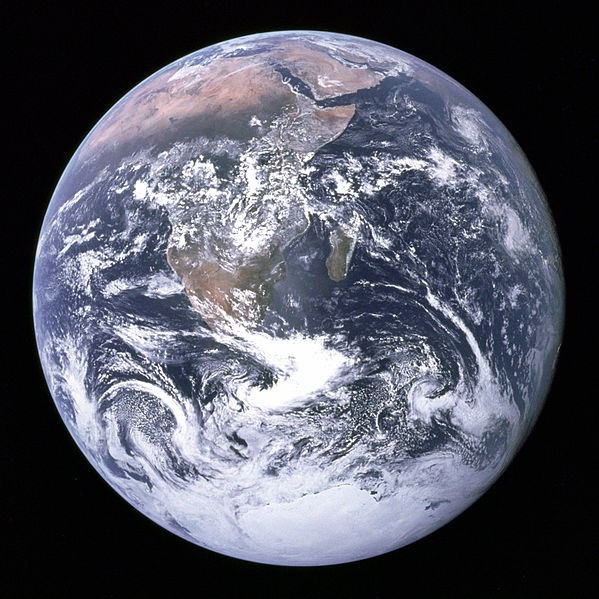Bangalore Blogger: We don't need Earth Hour – we need Earth Decade
On Saturday, 28 March 2015, we mark Earth Hour, the global environmental NGO WWF's answer to saving the planet. At 8:30pm, everyone is supposed to turn their lights out and "celebrate the Earth." It started in 2007, as a way to raise attention to climate change. Apparently people in 162 countries participated in 2014, while 1.2 billion tweets mentioned it.
As if an hour is going to save us from unpredictable floods, cyclones and droughts. The latest indications on the impending impacts of climate change are that we'll all be living below sea level by the turn of the next century, or living in barren, drought conditions where we have to flee from wildfires on a regular basis while fighting our neighbours for the last drop of water.

WWF has chosen to fight climate change with a one-hour global lights off event. It seems civil society is no longer able to budge the powers that be, or get individuals to change behaviours: getting people, companies and governments to commit to an hour of darkness is all we can do to combat the biggest threat known to humankind.
I think people in most of the world are brutally aware of the harm we're causing to our planet and its commensurate impacts. Ask a tribal farmer in drought ridden Telengana of central India - an area that is now receiving almost half the levels of rainfall it did a decade ago - and he will be able to rattle off the changing weather patterns and the loss of income he's suffered as a result, as he lives through perpetual debt just trying to keep up.
Ask someone who lives in the Peruvian Andes, and she'll be able to tell you how they now have almost 30% less fresh water than before, as glaciers are melting at an unprecedented pace.
Ask anyone who listens to the Archers on Radio 4 as the quaint farming village of Ambridge suffers the impacts of climate change after a flood drowned the village, killed poor voiceless Freda and left Linda Snell distraught after losing her dog, Scruff.
And not that the Republican party or Fox News would have you believe it, but according to a recent survey, even most Americans now agree that climate change is an issue for governments to take seriously.

Who is Earth Hour aimed at?
Politicians? The UK Parliament turned its lights out in 2014 during Earth Hour, but the latest government budget offered up new subsidies to the crisis-ridden North Sea Oil industry. Its obvious they know about climate change, but its more interesting to focus on kitchens.
Investors? While a few fringe investors are divesting, seeing the writing finally on the wall for renewables, the rest are holding on. Earth Hour corporate supporters, for one, aren't exactly paragons of virtue when it comes to climate change. HSBC, though it has a multi-million pound partnership with WWF, including sponsoring Earth Hour, continues to be one of the world's largest investors in fossil fuels.
A recent campaign by Move Your Money targeting large banks to divest from fossil fuels prompted the following response from HSBC: "HSBC recognises climate change is a serious threat to the world [but] the shift to a low-carbon economy will take time and fossil fuels will be an important part of the global energy mix for the foreseeable future."
Media? Well... perhaps, yes. Perhaps with the exception of the left-leaning Guardian, they do seem to have more of an obsession with the fate of Jeremy Clarkson and Top Gear than the plight of the planet and its mere inhabitants.
Earth Decade

They know, you see. But they just won't act. In fact, everyone and their dogs know about climate change, we're just not prepared to do anything about it. We don't want to make short-term sacrifices, in our energy consumption, buying patterns or farming practices. We don't want to change our economic model, or let politicians make hard decisions, even if it means we'll be more likely to feed people, have access to water and lead safe secure lives in the years to come.
Its not awareness we need, WWF, but action. While Earth Hour purports to drive action (a bit of crowd-funding for some environmental projects is the latest iteration), real action of the sort we need seems rather scant.
We don't need Earth Hour - we need an Earth decade or two. So my advice for Earth Hour 2015? Save your candles, and spend the time calling out the hypocrites who purport to support it's aims but still do nothing, other than sponsoring a few flashy events and reports. Create a twitter storm that's really worth having. #Earthdecade anyone?
© Copyright IBTimes 2025. All rights reserved.






















